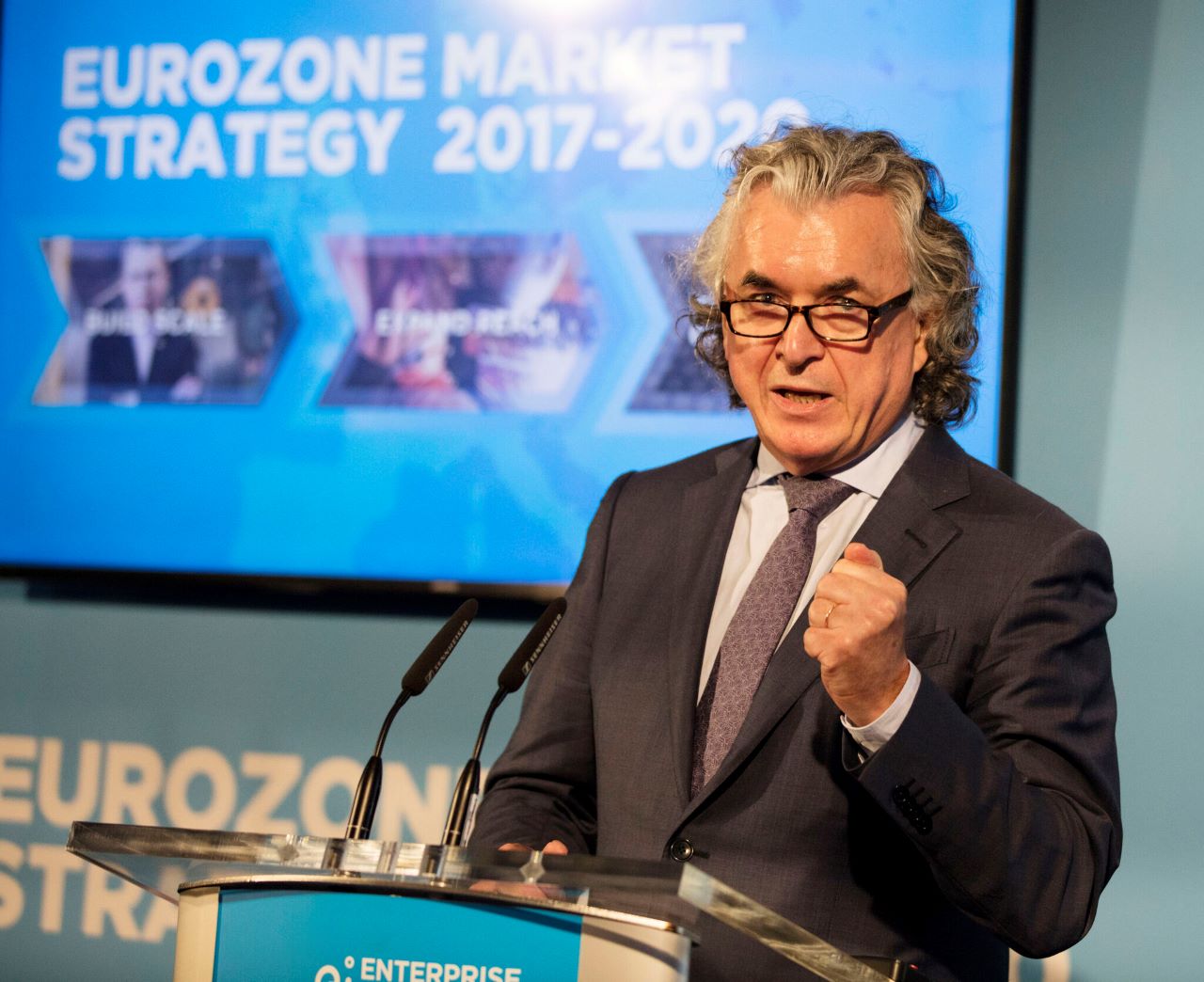As Minister for Media Catherine Martin appointed Terence O’Rourke as chair of RTÉ on Tuesday, the veteran of corporate and semi-state boardrooms was preparing to release the annual results of the other state-owned company he chairs, ESB.
O’Rourke is facing many challenges at the state broadcaster, as his predecessor Fintan Drury argued yesterday, though they will be very different from the one he faced on Thursday: Justifying ESB’s record profits. Ireland’s largest energy company saw its earnings grow by 18 per cent in Ebitda terms last year to fall just short of €2 billion, accelerating the growth in profitability observed since a pandemic dip in 2020.
ESB felt the need to circulate a pull-out from its annual report entitled “Using our profits in a sustainable way” to show all the good it has been doing with this avalanche of cash (as it reduced its debt, the group converted half of its Ebitda to net cash flow last year, another record).
O’Rourke’s preface to the annual results insisted on the €1.7 billion in capital expenditure re-invested by the group from profits. “This level of investment, primarily in critical energy infrastructure, for the benefit of customers, the economy and wider society, is underpinned by continued strong financial performance of the group,” he wrote, adding that ESB was also returning €220 million to the State in dividends.
Ironically, this will more or less pay for the €250 million Increased Cost of Business Scheme announced by the Government in the current budget to help SMEs deal with inflation, not least in their energy bills.
Inflation as luck would have it
In this column last week, I focused on businesses that did well in 2023 because they had insulated themselves from inflation, like Glanbia; or saw good strategies fail to return expected profits because of rising prices and interest rates, like Uniphar.
ESB’s example shows that others profited enormously from the inflation wave stemming from the energy shock caused by the war in Ukraine. Irish banks offer another example: Just like the energy group’s cut surged mechanically as the price of fuels it was processing into distributed electricity exploded, so did the banks’ net interest margins on financial flows governed by higher ECB interest rates.
The Currency is all about exploring the best and the worst of business performance and the people delivering it, but the picture emerging from companies’ latest annual results shows that luck also has a big part to play.
Yet in the case of banking, Sean’s analysis adds that the ability to leverage unpredictability has a lot to do with size. PTSB’s underperformance among pillar banks shows that, in the eyes of shareholders, it remains too small to justify the fixed costs of running a bank, compared with its much larger competitors AIB and Bank of Ireland.
ECB President Christine Lagarde’s comments on Thursday that inflation data was “directionally good” but “we will get a lot more data and a lot more information in June” was widely interpreted as a confirmation that rates would begin to drop then.
As we enter the fifth year of intense volatility since Covid-19 first shut down the Irish economy, its structural effects on how we do business have yet to be fully felt and understood.
*****
Elsewhere this week, Niall met Denise Harris, who heads up the leading commercial vehicle business started by her late husband Pino in Dublin. Chance, again, looms large in her story as she only found out after Pino died that he intended for her to take over. But her in-depth interview shows that she is leaving nothing to luck now that she leads 120 employees in a company transforming for the world of electrical vehicles.
Stephen McIntyre, who occupied senior positions at Google and Twitter before he became a venture capital partner with the investment firm Frontline, started a series of columns looking at the impact of changes in the technology industry on Ireland’s economy. The first instalment covers the types of jobs multinationals come to create here, and how they can’t be taken for granted. His insider views, grounded in real-life experience, are illuminating.
I sat down with Graham Cawley, the chief executive of Santiago Capital, and Melissa Lyons, who leads its new business lending sister company Santiago SME finance. We discussed Santiago’s business model funnelling investor’s capital into debt funding for Irish property developers, some of whom are reminiscent of Celtic Tiger-era tycoons, and the firm’s decision to branch into unsecured SME finance.
The full interview with Cawley is also available to listen to as a podcast.


